Pragmatic Scott Morrison right to champion G7 as a democratic bloc

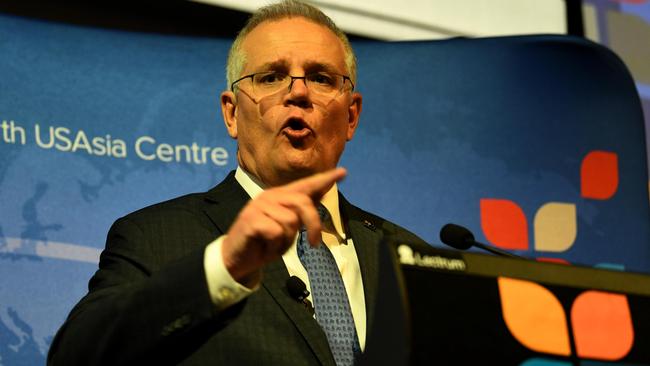
Make no mistake. The world is sorting itself out politically into a US-led grouping, mainly but not exclusively democracies, and a China-led association mainly of authoritarian dictatorships.
The G7’s evolution is fascinating. It was founded in the mid-1970s at the height of the Cold War. The original G7 members are: the US, Britain, Germany, France, Italy, Canada and Japan. Its initial purpose was to co-ordinate economic policy among the great economies. That task, which it never performed very effectively, has now passed to the much bigger G20, which includes Australia, China, India and others. The G7, while still having an economic focus, is meant to deal with broader political and international issues.
The G7 was always Eurocentric and lagged behind the explosive growth of Asian economies. For a time, after the Cold War, in an effort, ultimately futile, to integrate a briefly democratic Russia into the global order, it became the G8. But Moscow’s repeated human rights violations and multiple breaches of accepted international behaviour – what in the jargon is called “global norms” – meant it was booted out.
This year the G7 invited Australia, India, South Korea and South Africa – all democracies. There is no move to invite China. As Morrison commented on Wednesday, the G7 is now an association of “like-minded liberal democracies and advanced economies”.
West Australian Premier Mark McGowan’s criticism of Morrison’s language on China is characteristically foolish and provincial. McGowan serves Beijing’s interests by reinforcing the idea Beijing has the right to censor Australian speech. There was nothing in Morrison’s words which Beijing could reasonably find offensive, there was plenty it could unreasonably overreact to, which McGowan’s dopey reaction encourages.
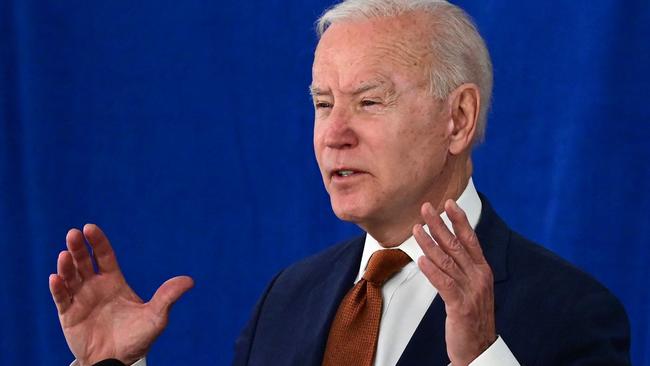
Morrison’s is not a Cold War-style exclusionist agenda. But it is good, and of great importance, that democracies be proud of their democracy, happy to associate explicitly with other democracies. The G7 foreign ministers’ recent joint declaration was similar in tone to recent Canberra statements. It was not inevitable the G7 would evolve this way.
The foreign ministers’ declaration, along with Australia being so often invited, especially when Beijing is running a campaign against us, indicates the G7’s trend.
Morrison’s speech outlining his own G7 agenda is simultaneously straightforward and complex. Its language is direct and careful, yet it embodies a difficult combination of interests and aspirations. It demonstrates strength in the face of Chinese coercion, without using any provocative language. Frankly, it is a very good prime ministerial speech, which balances our interests, our values, our aspirations and the hard, intractable realities of our situation. It has plenty of ambition for global co-operation but also a deep sense of the nations with which we can actually co-operate most fruitfully.
This does not represent any significant discontinuity between Morrison’s speech two years ago in which he mentioned the dangers of “negative globalism”, by which he meant global institutions that couldn’t do their core jobs but tended to interfere in the legitimate decisions of nations that chose to take them seriously. Morrison did not then suggest Australia would withdraw from such institutions, but rather they needed reform, and while that reform was going on Australia would make fit-for-purpose arrangements with other nations as necessary.
Since that speech, the dismal performance of the World Health Organisation over Covid, and the paralysis of the World Trade Organisation, have proved Morrison’s point entirely. The advent of the Biden presidency means Washington is formally committed to reforming some institutions, such as the WTO, which under Donald Trump it was effectively walking away from.
But let’s be wholly realistic here. It’s important to work to make global institutions as effective as possible. But in the big, dark, real world out there, real power is dispensed overwhelmingly by nation states. The WTO, under any circumstance that can be imagined in the real world, will not end Beijing’s trade coercion. The WHO, similarly, will not compel Beijing to come clean about the origins of COVID-19. So certainly get the institutions to do what good they can. But the real action will be among like-minded nations and nations with congruent interests.
Thus the strongest part of Morrison’s speech, much misunderstood by commentators fixated on global institutions, was his call that across a huge range of technologically sensitive areas, and other critical sectors of the economy, like-minded nations had to ensure they had supply chains that were reliable. That means non-Chinese supply chains, and similarly supply chains that don’t include China’s authoritarian allies such as Russia or Iran. Some commentators are completely misinterpreting Morrison’s speech as though he has become a Liberal baseball cap version of Gareth Evans. This is not what has happened.
Morrison, like all competent leaders, develops over time and accommodates changed circumstances. But Morrison’s strategic view is consistent – get institutions to do what good they can, but understand that real power and consequence lie with nations and the nations we can rely on best are first our like-minded allies, and second our partners, especially regional partners. These may not be so like-minded in political systems but share key views and interests with Australia.
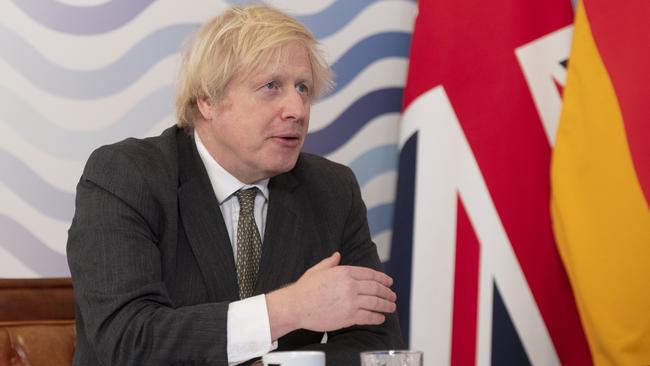
Morrison proposed action around five areas: supporting open societies and economies and strengthening the rules-based order; building sovereign capability and resilience; co-operating on global challenges; promoting business-led economic growth; demonstrating that liberal democracies work.
This is a sophisticated blend of interests and values. It represents a deep understanding that we cannot secure our interests if we abandon our values, while at the same time we are not running the declaratory foreign policy of a woke NGO.
The sense of crisis that pervades the international system arises essentially from a determined, sustained pattern of breaching international norms by China, the world’s second biggest economy and a burgeoning military power. Responding effectively to this requires a steely determination of will, and an enlightened eclecticism of means.
Arising from a thoroughly pragmatic understanding of Australia’s distinctive national circumstances, Morrison is also calling on like-minded nations, in their own interests and in the interests of common humanity, to hold steady. One of his best passages is to recognise the challenges posed by US-China strategic competition but to say we needn’t be scared by this, but we should be proactive about shaping the environment. Here’s hoping he succeeds.

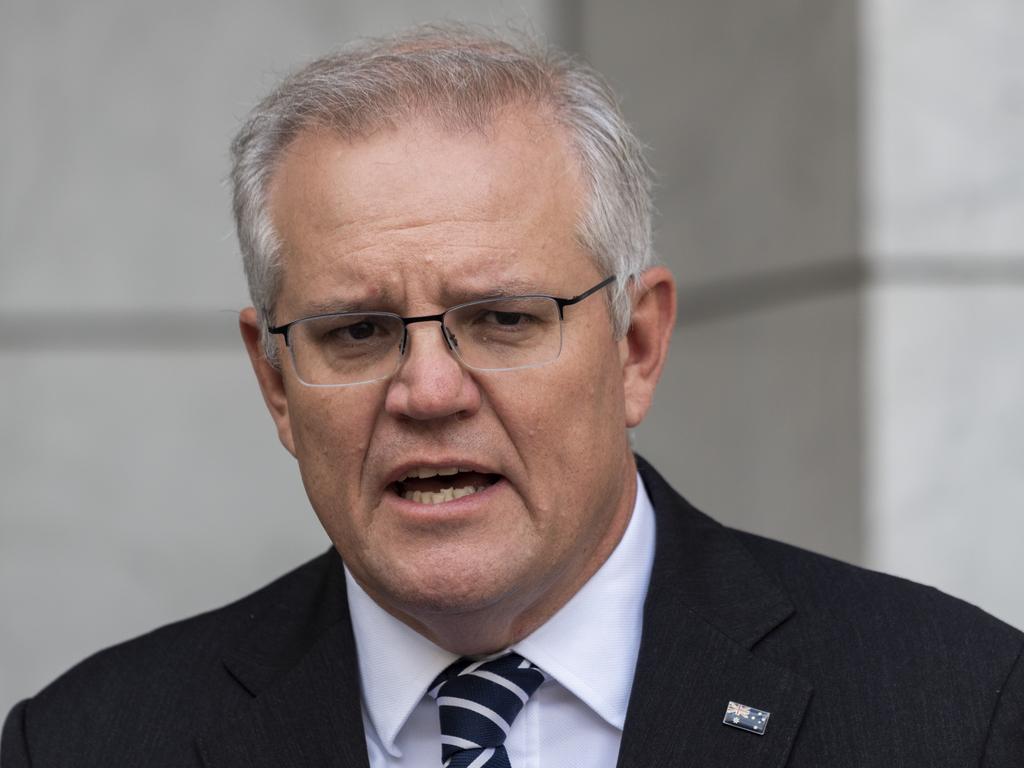

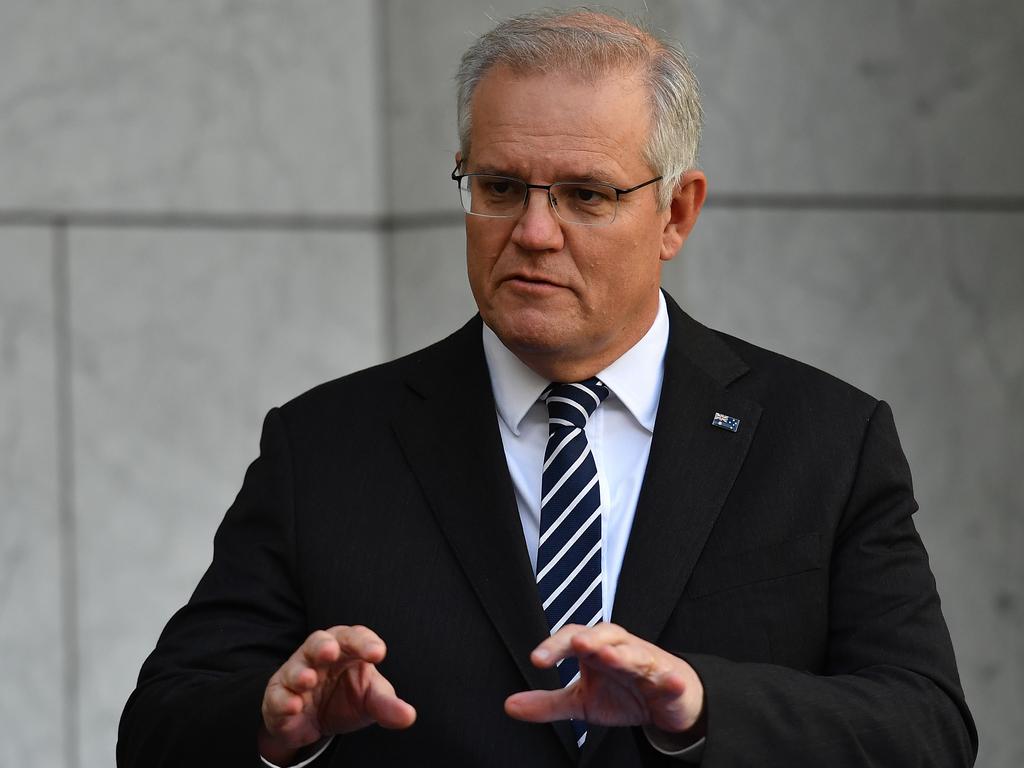
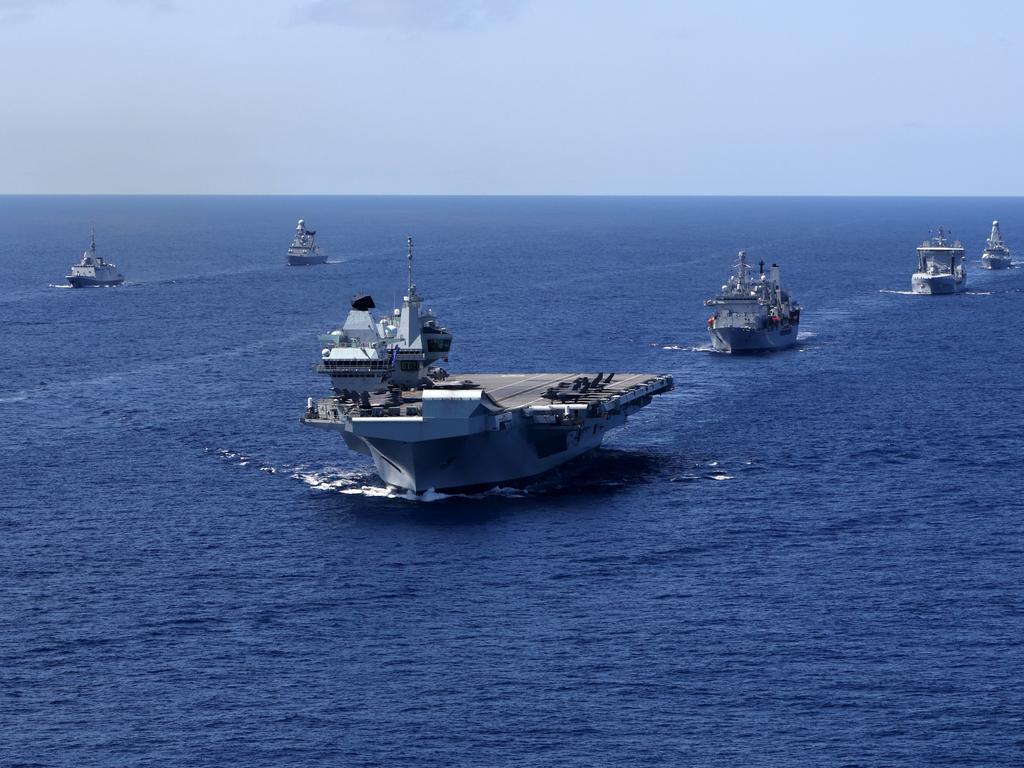


That Scott Morrison has been invited to three successive G7 summits is a telling sign of Australia’s standing in the world, but also of deep trends in the global economy and geopolitics.